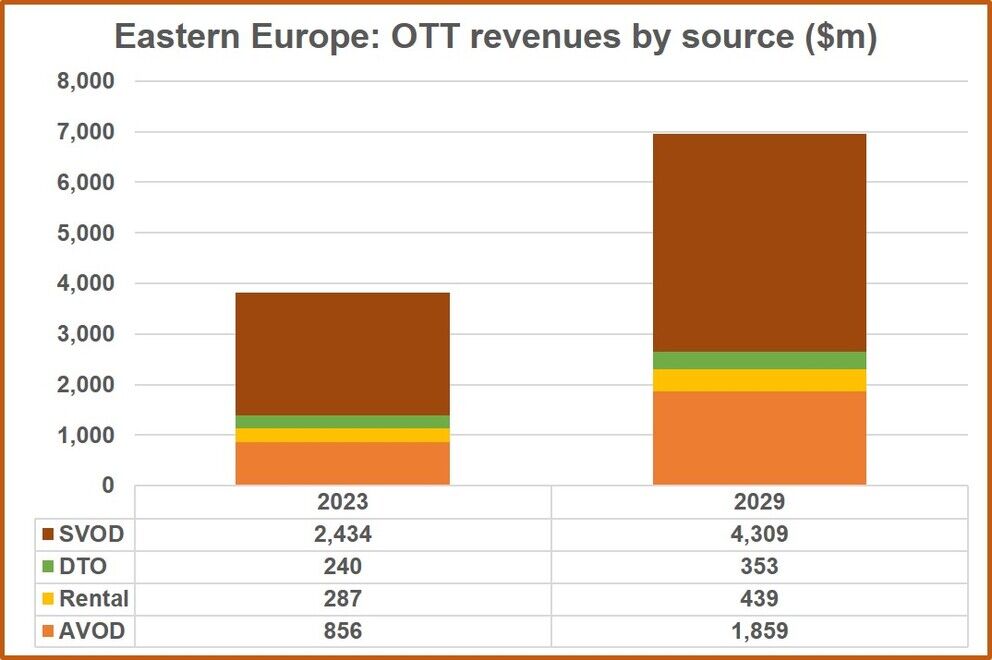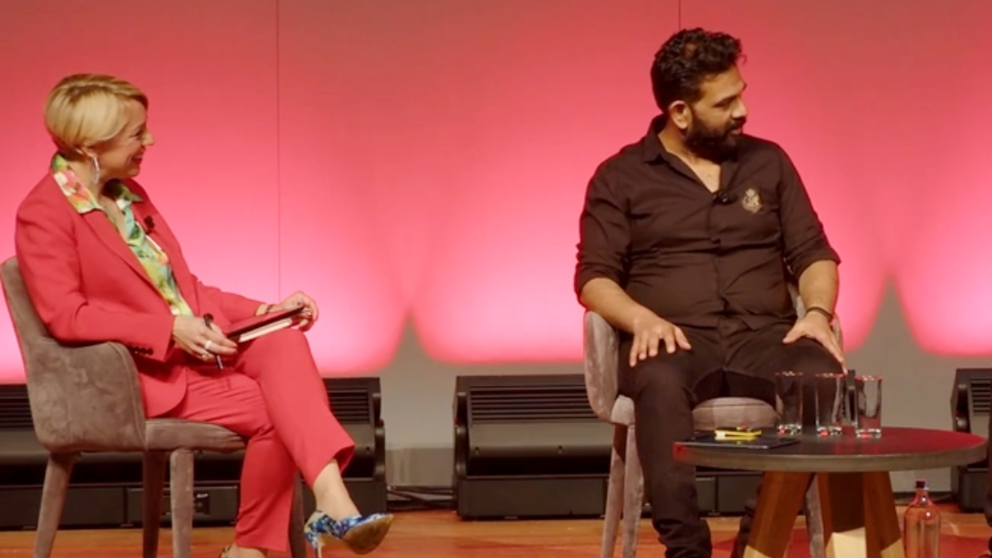Streaming revenues for 22 Eastern European countries will climb 82% by 2029, according to new figures from Digital Research.
Digital TV Research said OTT (over-the-top) revenues in Eastern Europe will reach $6.96bn in 2029, up from $3.82bn in 2023.

From the $3.1bn additional revenues between 2023 and 2029, Russia will provide $1bn and Poland $0.7bn.
Simon Murray, Principal Analyst at Digital TV Research, said: “Together Poland and Russia will account for two-thirds of the region’s 2029 revenues. This means that the remaining 20 countries will share $2.57bn – or an average of only $129m each.”
Subscription video-on-demand (SVOD) revenues will reach $4.3bn by 2029 – up from $2.4bn in 2023. Russia and Poland will be the only countries to generate SVOD revenues in excess of $1bn by 2029.
Advertising video-on-demand (AVOD) will add $1bn to take its total to $1.9bn. Rental revenues will hit $439m, while download to own (DTO) will rise to $353m.
Streaming platforms with a presence in Eastern Europe include HBO Max, Netflix, Disney+ and Amazon Prime Video.
You are not signed in
Only registered users can comment on this article.

Analysts say Banijay All3 merger is "bang on trend"
Banijay Group and RedBird IMI have agreed to merge Banijay Entertainment and All3Media to create a global media and entertainment company called Banijay.

Paramount plans to combine HBO Max and Paramount+
Paramount+ and HBO Max will be merged into one streaming service, according to David Ellison, CEO of Paramount.

Tilly Norwood creator makes key hire amid plans to ramp up business
Tilly Norwood AI talent studio Xicoia – founded by Particle6 CEO Eline van der Velden – has made its first major hire, bringing in former Amazon Prime Video executive Mark Whelan as Head of Strategy and Operations.

Winter Olympic Games 2026 is most-watched ever for European broadcasters
The Winter Olympic Games in Milano Cortina have achieved strong results for European public service broadcasters.

Jonathan Allan to step down from Channel 4
Channel 4’s interim Chief Executive Jonathan Allan is to leave the organisation after 15 years.




